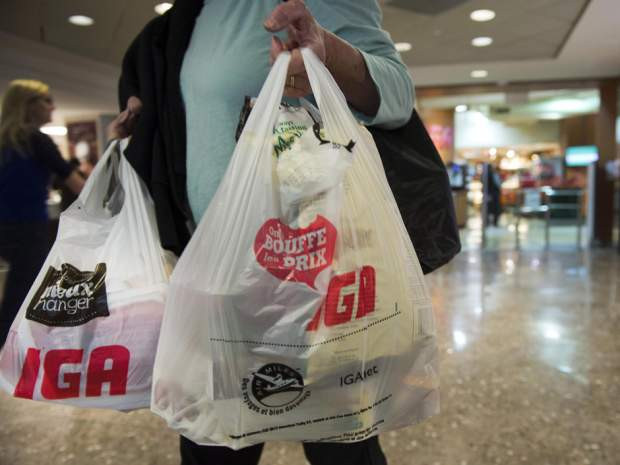Montreal City to Ban Plastic Bags
Starting January 2018, shopping malls, supermarkets, and grocery stores in the Canadian city of Montreal will not be allowed to use plastic shopping bags to carry items for customers.
This was announced by Montreal Mayor Denis Corderre earlier this week. In an effort to protect the environment, the Montreal city government has unanimously passed a decision to ban the use of plastic shopping bags and replace them with lightweight, biodegradable paper bags or reusable plastic bags.
 |
| Montreal city government has unanimously passed a decision to ban the use of plastic shopping bags. |
According to Mr. Corderre, the ban on plastic bags demonstrates the determination of the government and the people to make Montreal a greener, less polluted city. The ban on plastic bags will start in 2018 to give businesses and residents in the city time to prepare, but people can still say no to plastic bags now.
Montreal is the first city in the province of Quebec and in Canada to impose a ban. Montreal officials say the decision was made based on recommendations from the city’s environmental commission. According to figures released by Greener Footprints, a British Columbia-based non-profit environmental advocacy group, Canada uses about 15 billion plastic bags each year. If stacked together, that would be enough to circle the Earth 55 times.
Currently, paper and plastic bags make up about 20 percent of household waste collected from Canadian households. Only about 8 percent of plastic waste is recycled. The rest ends up in landfills. These plastic bags are non-biodegradable and remain in the ground for years and years, taking up to 500 years to decompose.
The harmful effects of plastic bags on the environment have been mentioned a lot recently and are no longer strange to the whole society. Many countries in the world have banned the production and trade of plastic bags at different levels and scales, depending on their socio-economic conditions.
Dhaka, the capital of Bangladesh, was the first city in the world to ban the use of plastic bags in 2002. Rwanda, Taiwan, Singapore, Israel, India, Botswana, Eritrea, Kenya, Tanzania, South Africa, Italy, Australia, the US, the UK, France, Ireland, etc. have also had similar campaigns to ban or limit their use. Recently, China also banned the use of ultra-thin plastic bags in an effort to reduce pollution and save oil resources.
Some critics have questioned whether plastic bag bans are an effective way to cut waste. Because of their convenience, many people still use them every day. Even today, most supermarkets in Ottawa, Toronto and many other Canadian cities charge shoppers an additional $0.05 Canadian (CAD) for each plastic bag, but shoppers still accept it.
Along with the development of the socio-economy, although people's awareness of environmental protection has been raised, it is only at the level of starting to pay more attention to environmental issues without being aware of their specific responsibilities. In June 2013, The Weather Network, one of the most widely and frequently consulted television networks in Canada, conducted a public opinion poll on the topic "Is banning plastic bags a good idea?". Of the 1,443 votes, 58% voted that it was a good idea, 38% voted that it was not, and 4% were still undecided.
According to News
| RELATED NEWS |
|---|


